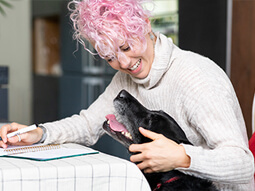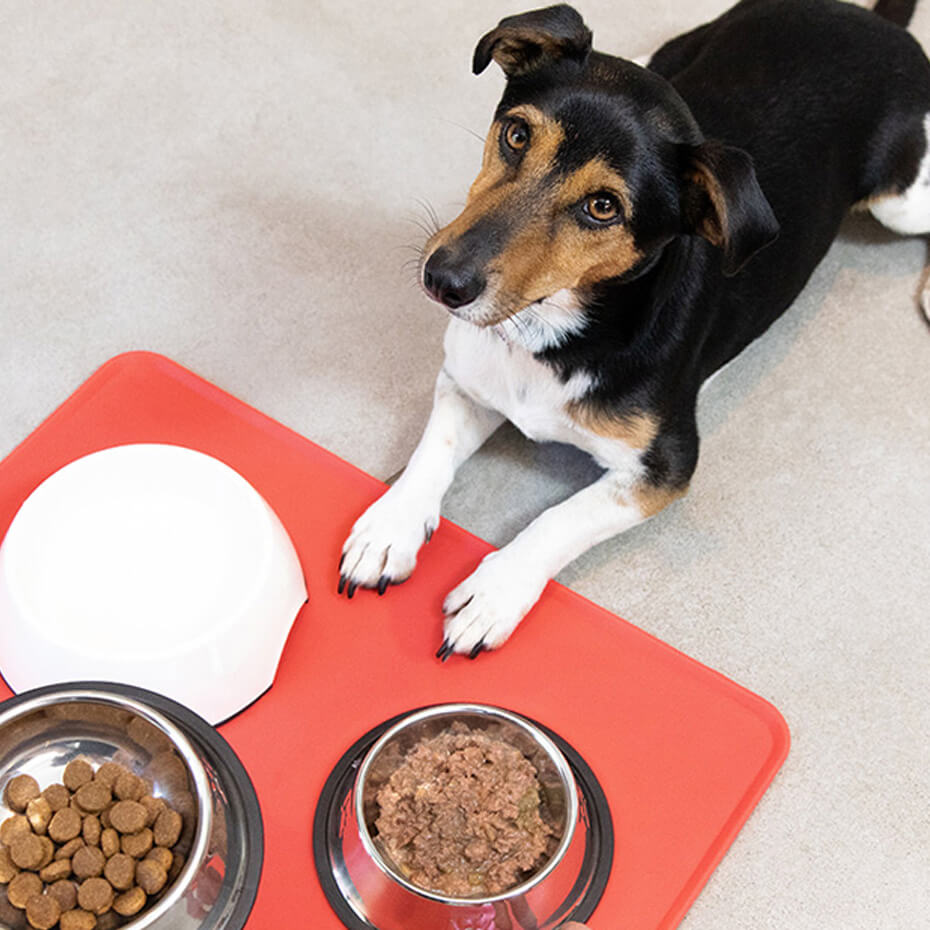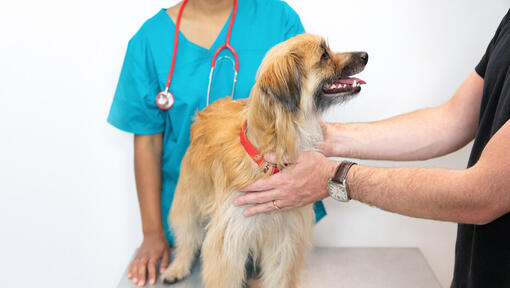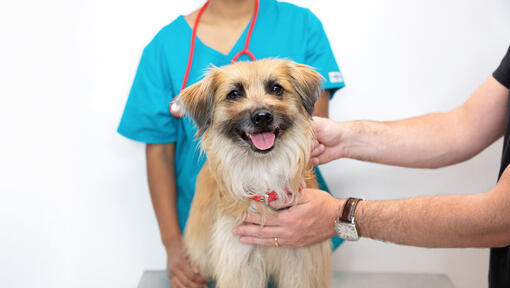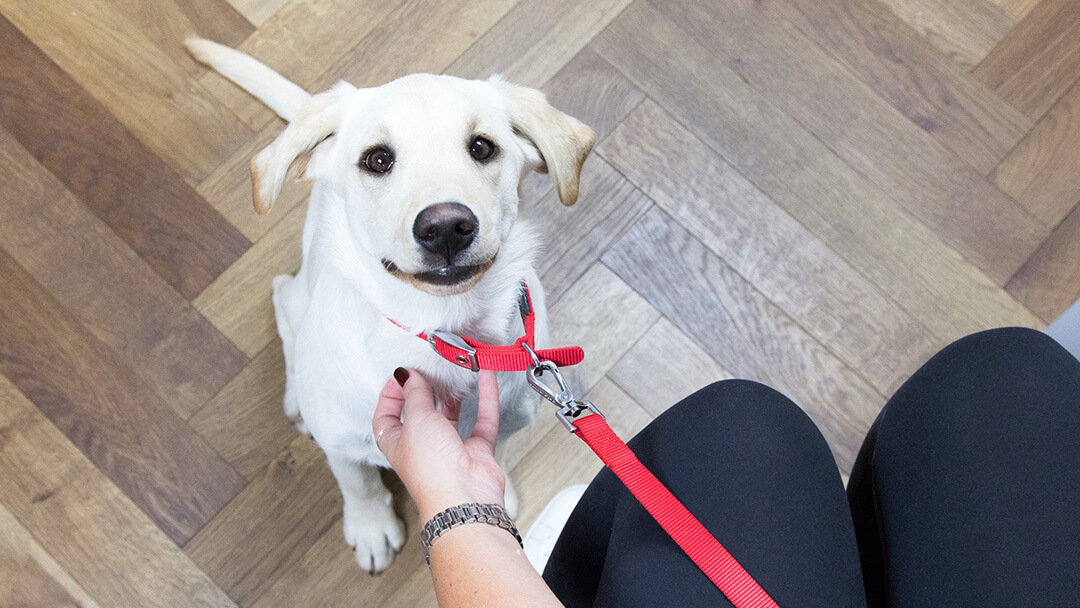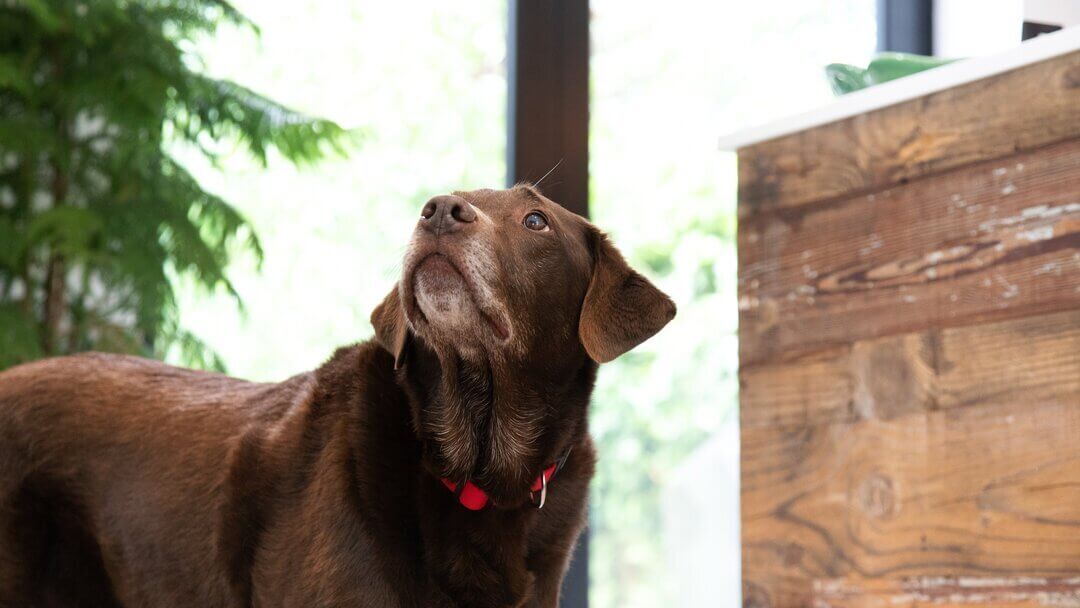
Hernias can be quite common in dogs, especially in puppies. Our guide tells you the most common types of hernias and the likely treatments used to fix them.
Hernias in dogs are relatively common, especially with puppies. Much like in people, a hernia is a condition where the contents of a dog’s abdomen pushes through a tear or hole in the muscle wall or fatty tissue. Over 90% of hernia cases are due to genetics, as puppies are most commonly born with them. However, hernias can also develop as a result of trauma, such as being hit by a car.
The severity of hernia in dogs varies depending on where your dog has developed a hernia. This also determines if they are complicated or uncomplicated. Keep reading to find out what the most common types are, the possible symptoms and the methods of treating them.
Common types of dog hernia
There are five common types of hernias in dogs, which vary in severity, ranging from non-concerning to life threatening. Hernias are categorised as either congenital – which means that dogs are born with it – or develop due to a trauma.
The types are as follows:
1. Umbilical hernia
This is the most common type for hernias in puppies. It’s most noticeable as a squishy protrusion near your puppy’s belly button. Sometimes these can heal on their own, however they may need to be surgically fixed when your puppy is neutered. It’s usually best to consult your vet and they will advise on the best way to proceed.
2. Inguinal hernia
These occur in the groin area where the inner fold of your dog’s hind leg attaches to their body. They can range in size and if they’re large enough, parts of the bladder or uterus may get trapped, which could be life threatening. These are most common in middle-aged female dogs, especially when they’re pregnant.
3. Diaphragmatic hernia
This type of dog hernia can be due to a hole in the diaphragm, which is a muscle that separates the chest and the abdomen. This hole allows internal organs to enter your dog’s chest cavity, which can cause breathing difficulty. Dogs are usually born with a diaphragmatic hernia.
4. Perineal hernia
Your dog can develop this type of hernia if there’s a tear in their pelvic muscles, which allows the abdominal contents to come through. This type is most common in male dogs over the age of 5 that haven’t been neutered. Certain breeds of dogs can be predisposed to this type of hernia, including Welsh Corgis, Boston terriers, Boxers and Collies.
5. Hiatal hernia
Hiatal hernias in dogs generally develop as a result of injury or trauma. The opening in the diaphragm can sometimes be large, which allows the stomach to enter the chest cavity. The stomach can pass through this hole and most commonly slips back and forth between the chest and abdomen. This type can either be congenital or develop due to trauma, it is also most common in English Bulldogs and other brachycephalic breeds, as the pressures created by their crushed airway can suck the stomach through the opening.
Symptoms of dog hernias
If a dog develops a hernia, they may show symptoms including:
- Vomiting
- Loss of appetite
- Cramping
- High fever
- Leg numbness
- Lethargy
- Swelling
- Shortness of breath
- Excessive drooling
Diagnosis
If you suspect your dog may have a hernia, you should take them to a vet immediately for diagnosis. Sometimes a hernia will be visible, or your vet may feel it during an exam. If your dog’s hernia is not easy to see then your vet may have to do X-rays to find out where the hernia is.
Additionally, an abdominal ultrasound may be required to find out what contents are trapped. Your vet will also be on the lookout for any respiratory, abdominal disorders and any painful or hard bulges.
Treatment for dog hernias
The good news is that hernias in dogs are completely treatable. A simple surgery is usually required to correct the hole and to replace the abdominal contents back into the abdomen.
Additionally, if your dog is not already spayed or neutered, then this treatment will be highly recommended as it can prevent hernias in dogs. If the hernia is congenital, it’s usually advised that you neuter the dog to prevent breeding from them, as it’s a possibility that puppies could have the same problems.
It’s important that a dog with a hernia receives medical treatment as soon as possible, as dogs are unable to outgrow a hernia and it won’t heal over time. An untreated hernia can result in a great amount of pain for your dog and could lead to medical complications.
Next, discover some of the more unusual signs of illness in dogs to watch out for.
